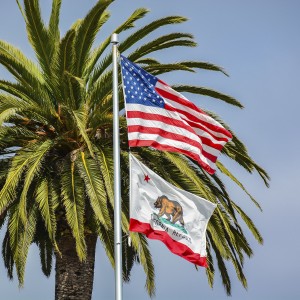
If you’re being charged with DUI in California, it can be helpful to find out about the laws that pertaining to driving under the influence of drugs and/or alcohol. Read on to find out what drunk driving laws are on the books in California.
Administrative License Suspension Laws
42 of 50 states, including California, place driver licenses on administrative license suspension (ALS) for first DUI offenses. Under this provision, law enforcement officials confiscate individuals’ driver’s licenses for a certain period of time when she or he fails a chemical test that indicates alcohol or drug intoxication. After 30 days, the individual will be able to have limited driving privileges, such as driving to and from work.
In California, if your license is suspended and you fail to contact the DMV for a license suspension hearing within 10 days, you will forfeit your right to have your license reinstated. So if your license has been suspended, it’s essential that you contact attorney Dan Chambers ASAP to start building your defense.
Mandatory ignition interlock laws
California state law doesn’t have a mandatory ignition interlock law, but 4 counties—Almeda, Los Angeles, Tulare, and Sacramento—do require first offenders and all others to have an ignition interlock installed on their cars. These interlocks analyze the driver’s breath and disable the engine if alcohol is detected.
California also impounds and confiscates all drunk driving offenders’ vehicles upon conviction.
Open Container and Repeat Offender Laws
Federal law indicates that states must implement open container and repeat offender laws that meet specific requirements, and California meets all federal mandates in these areas. The requirements for open container laws state that no one may have an open alcoholic beverage in their vehicle on any public road in any state. Doing so is a crime throughout California.
The repeat offender requirements indicate that repeat DUI offenders must have their driver privileges suspended for at least a year. Reinstatement of driving privileges is dependant on certain limitations and restrictions, including the installation of an ignition interlock for at least than a year in each of the motor vehicles driven and/or owned by the convicted DUI offender. For one year, the vehicle must be impounded or immobilized, after which immobilization or ignition interlocks must be installed on every vehicle owned by the individual.
Repeat Offender Penalties
Minimum penalties for repeat offenders include at least 5 days imprisonment or 30 days of community service for a 2nd offense, and 10 days imprisonment or 60 days of community service for a 3rd of subsequent offense.
Alcohol Exclusion Laws
California has alcohol exclusion laws that allows insurance companies to deny payment for the treatment of drunk drivers’ injuries. This law can be rather controversial because some doctors neglect to diagnose drunk drivers with alcoholism and recommend treatment because they fear the financial repercussions the driver would experience.
Expert DUI criminal defense attorney: Dan Chambers
If you’re dealing with a DUI charge and want to avoid conviction and the handing down of severe penalties, contact DUI specialist attorney Dan Chambers of the Chambers Law Firm today. Schedule a free consultation by calling 714-760-4088, emailing dchambers@clfca.com, or sending an online message by clicking CONTACT in the menu at the top of this page.




